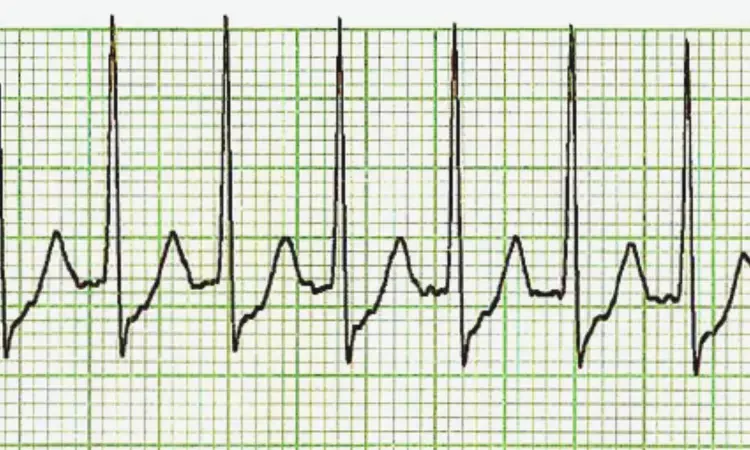- Home
- Medical news & Guidelines
- Anesthesiology
- Cardiology and CTVS
- Critical Care
- Dentistry
- Dermatology
- Diabetes and Endocrinology
- ENT
- Gastroenterology
- Medicine
- Nephrology
- Neurology
- Obstretics-Gynaecology
- Oncology
- Ophthalmology
- Orthopaedics
- Pediatrics-Neonatology
- Psychiatry
- Pulmonology
- Radiology
- Surgery
- Urology
- Laboratory Medicine
- Diet
- Nursing
- Paramedical
- Physiotherapy
- Health news
- Fact Check
- Bone Health Fact Check
- Brain Health Fact Check
- Cancer Related Fact Check
- Child Care Fact Check
- Dental and oral health fact check
- Diabetes and metabolic health fact check
- Diet and Nutrition Fact Check
- Eye and ENT Care Fact Check
- Fitness fact check
- Gut health fact check
- Heart health fact check
- Kidney health fact check
- Medical education fact check
- Men's health fact check
- Respiratory fact check
- Skin and hair care fact check
- Vaccine and Immunization fact check
- Women's health fact check
- AYUSH
- State News
- Andaman and Nicobar Islands
- Andhra Pradesh
- Arunachal Pradesh
- Assam
- Bihar
- Chandigarh
- Chattisgarh
- Dadra and Nagar Haveli
- Daman and Diu
- Delhi
- Goa
- Gujarat
- Haryana
- Himachal Pradesh
- Jammu & Kashmir
- Jharkhand
- Karnataka
- Kerala
- Ladakh
- Lakshadweep
- Madhya Pradesh
- Maharashtra
- Manipur
- Meghalaya
- Mizoram
- Nagaland
- Odisha
- Puducherry
- Punjab
- Rajasthan
- Sikkim
- Tamil Nadu
- Telangana
- Tripura
- Uttar Pradesh
- Uttrakhand
- West Bengal
- Medical Education
- Industry
Nasal Etripamil Nearly Twice as Effective as Placebo in Halting PSVT Episodes, Trial Finds

USA: A recent study published in JAMA Cardiology revealed that self-administered etripamil was almost twice as effective as placebo in terminating paroxysmal supraventricular tachycardia (PSVT) episodes within 30 minutes.
The recent secondary analysis of data from two phase 3 randomized clinical trials has shed light on the potential of self-administered intranasal etripamil in reducing emergency department (ED) visits among individuals with PSVT. This fast-acting calcium channel blocker, delivered through the nasal route, is being evaluated for its efficacy in managing acute episodes of atrioventricular-nodal-dependent PSVT outside hospital settings.
Paroxysmal supraventricular tachycardia is characterized by sudden, rapid heart rhythms often requiring immediate intervention to restore normal rhythm. Traditional oral therapies have been limited by delayed onset and potential side effects, making rapid-acting alternatives an area of clinical interest.
The analysis combined data from the NODE-301 part 1 and its continuation study, RAPID, which were double-blind, placebo-controlled, and event-driven. Participants were trained to self-administer a 70 mg dose of etripamil at the onset of PSVT symptoms. In the RAPID extension, a second dose was permitted 10 minutes after the first if symptoms persisted. Patients were advised to seek emergency care if symptoms continued beyond 30 minutes.
The key findings of the study were as follows:
- The pooled analysis included 340 patients, with 206 receiving etripamil and 134 receiving a placebo. The average age of participants was 54.7. Women made up nearly 70% of the study population.
- Before taking the study drug, 370 patients attempted vagal maneuvers, but only 4.6% achieved PSVT termination using this method.
- PSVT episodes were resolved within 30 minutes in 57.8% of patients who used etripamil, compared to 32.1% in the placebo group.
- Only 13.6% of patients in the etripamil group required an emergency department visit, compared to 22.4% in the placebo group.
- This corresponded to an 8.8% absolute and 39% relative reduction in ED visits, with a relative risk of 0.61.
- Etripamil was generally well-tolerated, with most side effects limited to the nasal administration site.
- No serious adverse events were reported in patients who received etripamil.
Given that PSVT affects approximately 1 in 300 people in the U.S. and leads to substantial healthcare utilization, the availability of an effective at-home treatment could significantly ease the burden on emergency services. The analysis suggests that treating 12 patients with etripamil could prevent one ED visit.
While the results are promising, Sean D. Pokorney, Division of Cardiology, Department of Medicine, Duke University School of Medicine, Durham, North Carolina, and colleagues note that future research is needed to explore further the impact of etripamil on long-term healthcare outcomes and its broader applicability. Pooling data from multiple studies, though necessary to achieve statistical power, also presents certain limitations that future investigations may help address.
Reference:
Pokorney SD, Camm AJ, Dorian P, et al. Self-Administered Etripamil and Emergency Department Visits in Supraventricular Tachycardia: A Secondary Analysis of a Randomized Clinical Trial. JAMA Cardiol. Published online April 09, 2025. doi:10.1001/jamacardio.2025.0417
Dr Kamal Kant Kohli-MBBS, DTCD- a chest specialist with more than 30 years of practice and a flair for writing clinical articles, Dr Kamal Kant Kohli joined Medical Dialogues as a Chief Editor of Medical News. Besides writing articles, as an editor, he proofreads and verifies all the medical content published on Medical Dialogues including those coming from journals, studies,medical conferences,guidelines etc. Email: drkohli@medicaldialogues.in. Contact no. 011-43720751


